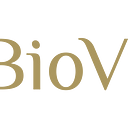Beyond Limitless: Unveiling the Real NZT-48, Klotho Gene Therapy

In Limitless, the film’s protagonist is a struggling writer desperate for success. As luck would have it, he is introduced to an experimental drug that unlocks his full potential.
The film was a box office success, and it is easy to see why.
Nootropics, drugs, and various supplements for memory, focus, and mental agility have been used for millennia. The desire to elevate ourselves is universal, much like the quest for longevity–and, unsurprisingly, the two are intertwined.
Imagine a gene that could increase your IQ by 6, 9, or even 12 points — nearly a full standard deviation.
A way of doing this, while protecting our brains and prolonging healthy longevity, is not fiction or theory. NZT-48 from Limitless may have a real-life counterpart: a protein called Klotho. Klotho gene therapy could be a common preventative measure in the near future, one with genuinely life-enhancing benefits.
In a recent Nature article, Klotho enhanced cognition in primates. Macaques were tested through a spatial memory experiment: researchers hid snacks and incited their subjects to recall where the treats were hidden.
Initially, macaques could remember 45% of the time. After receiving Klotho injections, this rose to 60% (Castner, 2023).
Beyond bolstering memory, Klotho plays other crucial roles in the brain, regulating hippocampal functions, neurogenesis (the growth of new brain cells), and synaptic plasticity (how efficiently neuronal connections strengthen or weaken over time — this is indispensable to learning).
For these reasons and others, Klotho gene therapy is a promising intervention against aging and its associated ailments, including Alzheimer’s and other forms of dementia (Vo, 2018).
More exciting are the results of a human study analyzed by BioViva.
Scores on the Folstein cognitive test fall predictably in these patients — they do not rise or stay the same. However, those given gene therapy improved (Sewell, 2021).
We are still only scratching the surface of Klotho’s benefits for different patient populations. When it’s scarce, its brain-boosting and neuroprotective properties become starkly evident.
This is problematic for “normal” aging and specific conditions: KL decreases proportionally to the progression of multiple sclerosis, low levels are correlated with bipolar disorder (Emami, 2015; Barbosa, 2017).
Higher plasma levels are correlated with cognitive preservation in schizophrenia. It appears to play a compensatory role in a disease that typically impairs cognitive function.
KL-VS, a specific allele of the gene, increases carrier IQs by approximately 6 points. Later tests with 718 subjects led to similar conclusions. Memory, verbal fluency, attention, and visuospatial awareness were all tested (Matyszczyk, 2014).
One would be pressed to find a better all-purpose nootropic. Plasma levels are positively correlated with enhanced working memory, attention, and executive function. The most positively correlated of these is executive function (Xiong, 2020).
Klotho is more than an all-natural nootropic; it’s a biomarker of aging. Its absence in mice is directly linked to progeroid phenotypes (very premature aging and severely shortened lifespans), while over-expression extends lifespan by 30% (Cheiki, 2019).
Although Klotho may not be the elixir of life, nor make us as transcendentally brilliant as Eddie Morra, the reality is no less astounding. Klotho gene therapy looks like a path to sharper minds and longer lives for all.
References and Suggested Reading
Barbosa IG, Rocha NP, Alpak G, Vieira ELM, Huguet RB, Rocha FL, et al. Klotho dysfunction: A pathway linking the aging process to bipolar disorder? J Psychiatr Res. 2017;95: 80–3.
Castner, S.A., Gupta, S., Wang, D. et al. Longevity factor klotho enhances cognition in aged nonhuman primates. Nat Aging 3, 931–937 (2023). https://doi.org/10.1038/s43587-023-00441-x
Cheikhi A, Barchowsky A, Sahu A, Shinde SN, Pius A, Clemens ZJ, Li H, Kennedy CA, Hoeck JD, Franti M, Ambrosio F. Klotho: An Elephant in Aging Research. J Gerontol A Biol Sci Med Sci. 2019 Jun 18;74(7):1031–1042. doi: 10.1093/gerona/glz061. PMID: 30843026; PMCID: PMC7330474.
Emami Aleagha MS, Siroos B, Ahmadi M, Balood M, Palangi A, Haghighi AN, et al. Decreased concentration of Klotho in the cerebrospinal fluid of patients with relapsing-remitting multiple sclerosis. J Neuroimmunol. 2015;281: 5–8.
Matyszczyk, Chris “Six IQ Points Smarter? There Might Be a Gene for That.” CNET, www.cnet.com/science/six-iq-points-smarter-there-might-be-a-gene-for-that/. Accessed 21 Jan. 2024.
Sewell, P. E., et al. “Safety Study of AAV hTert and Klotho Gene Transfer Therapy for Dementia.” J Regen Biol Med 3.6 (2021): 1–15.
Vo HT, Laszczyk AM, King GD. Klotho, the Key to Healthy Brain Aging? Brain Plast. 2018 Aug 10;3(2):183–194. doi: 10.3233/BPL-170057. PMID: 30151342; PMCID: PMC6091049.
Xiong JW, Zhan JQ, Luo T, Chen HB, Wan QG, Wang Y, Wei B, Yang YJ. Increased Plasma Level of Longevity Protein Klotho as a Potential Indicator of Cognitive Function Preservation in Patients With Schizophrenia. Front Neurosci. 2020 Jun 16;14:610. doi: 10.3389/fnins.2020.00610. PMID: 32612508; PMCID: PMC7308714.
